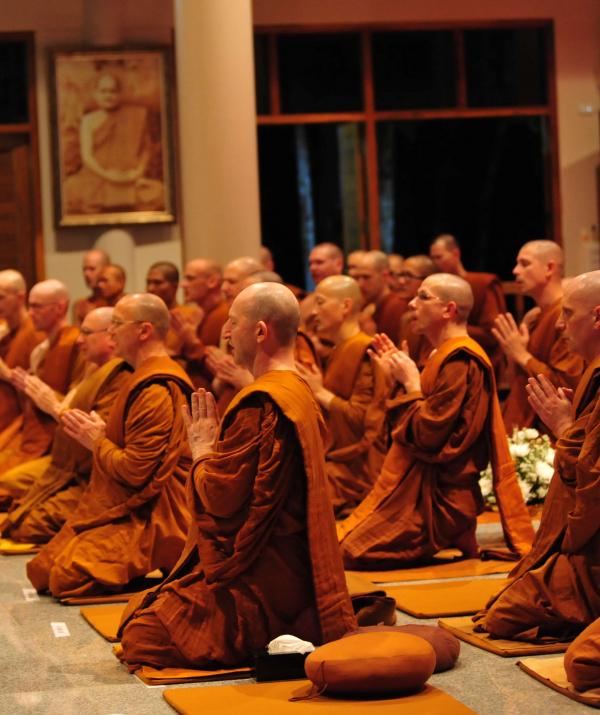Cuộc sống là một sự liên kết nhiệm mầu mà chúng ta không bao giờ có thể tìm được hạnh phúc thật sự khi chưa nhận ra mối liên kết ấy.Tủ sách Rộng Mở Tâm Hồn
Con người chỉ mất ba năm để biết nói nhưng phải mất sáu mươi năm hoặc nhiều hơn để biết im lặng.Rộng Mở Tâm Hồn
Cuộc sống xem như chấm dứt vào ngày mà chúng ta bắt đầu im lặng trước những điều đáng nói. (Our lives begin to end the day we become silent about things that matter. )Martin Luther King Jr.
Ai sống quán bất tịnh, khéo hộ trì các căn, ăn uống có tiết độ, có lòng tin, tinh cần, ma không uy hiếp được, như núi đá, trước gió.Kinh Pháp cú (Kệ số 8)
Điều khác biệt giữa sự ngu ngốc và thiên tài là: thiên tài vẫn luôn có giới hạn còn sự ngu ngốc thì không. (The difference between stupidity and genius is that genius has its limits.)Albert Einstein
Hãy thận trọng với những hiểu biết sai lầm. Điều đó còn nguy hiểm hơn cả sự không biết. (Beware of false knowledge; it is more dangerous than ignorance.)George Bernard Shaw
Để chế ngự bản thân, ta sử dụng khối óc; để chế ngự người khác, hãy sử dụng trái tim. (To handle yourself, use your head; to handle others, use your heart. )Donald A. Laird
Hầu hết mọi người đều cho rằng sự thông minh tạo nên một nhà khoa học lớn. Nhưng họ đã lầm, chính nhân cách mới làm nên điều đó. (Most people say that it is the intellect which makes a great scientist. They are wrong: it is character.)Albert Einstein
Cuộc sống là một sự liên kết nhiệm mầu mà chúng ta không bao giờ có thể tìm được hạnh phúc thật sự khi chưa nhận ra mối liên kết ấy.Tủ sách Rộng Mở Tâm Hồn
Tài năng là do bẩm sinh, hãy khiêm tốn. Danh vọng là do xã hội ban cho, hãy biết ơn. Kiêu căng là do ta tự tạo, hãy cẩn thận. (Talent is God-given. Be humble. Fame is man-given. Be grateful. Conceit is self-given. Be careful.)John Wooden
Sự thành công thật đơn giản. Hãy thực hiện những điều đúng đắn theo phương cách đúng đắn và vào đúng thời điểm thích hợp. (Success is simple. Do what's right, the right way, at the right time.)Arnold H. Glasow
Trang chủ »» Danh mục »» TỦ SÁCH RỘNG MỞ TÂM HỒN »» none »» How to Practice Chanting »»
 Xem Mục lục
Xem Mục lục  Vietnamese || Đối chiếu song ngữ
Vietnamese || Đối chiếu song ngữ

DO NXB LIÊN PHẬT HỘI PHÁT HÀNH
Mua sách qua Amazon sẽ được gửi đến tận nhà - trên toàn nước Mỹ, Canada, Âu châu và Úc châu.
Quý vị đang truy cập từ IP 216.73.216.157 và chưa ghi danh hoặc đăng nhập trên máy tính này. Nếu là thành viên, quý vị chỉ cần đăng nhập một lần duy nhất trên thiết bị truy cập, bằng email và mật khẩu đã chọn.
Chúng tôi khuyến khích việc ghi danh thành viên ,để thuận tiện trong việc chia sẻ thông tin, chia sẻ kinh nghiệm sống giữa các thành viên, đồng thời quý vị cũng sẽ nhận được sự hỗ trợ kỹ thuật từ Ban Quản Trị trong quá trình sử dụng website này.
Việc ghi danh là hoàn toàn miễn phí và tự nguyện.
Ghi danh hoặc đăng nhập